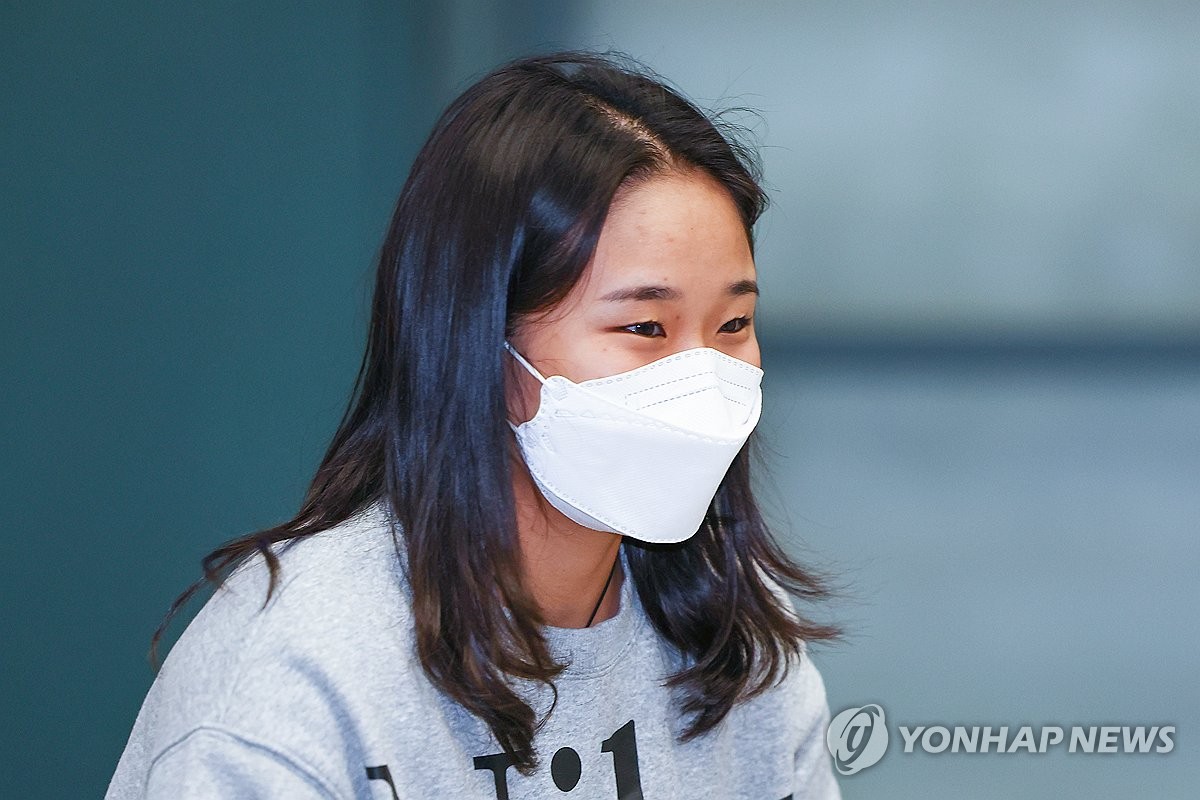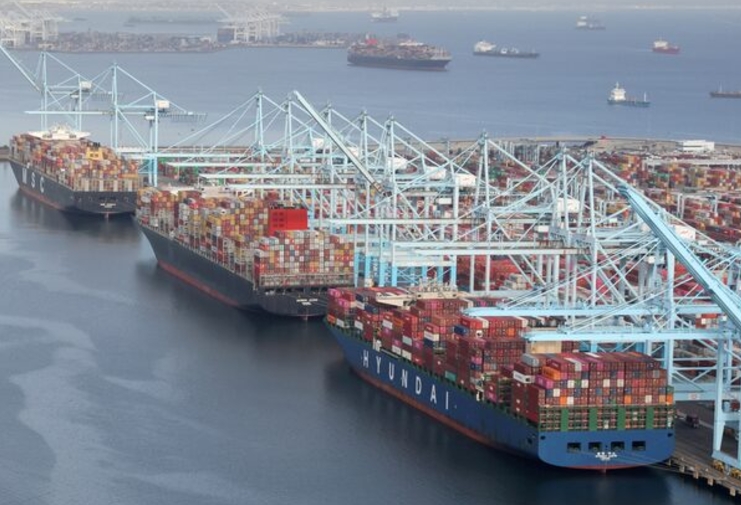Putin: “We will write off 130 million won in debt to Russian soldiers who participated in the war”
Published date: 2024-11-25 17:34 Updated: 2024-11-25 17:36
Russian President Vladimir Putin. Photo = EPA Yonhap News/Kremlin
Russia, which is suffering from a troop shortage, has begun recruiting new soldiers by offering to forgive up to 130 million won in debt.
Citing the official Russian government website, Reuters reported, “Russian President Vladimir Putin signed a law on debt exemption for new soldiers volunteering to fight in Ukraine on the 23rd (local time).”
According to the Kremlin, the law covers those who have signed a contract with the Ministry of Defense to participate in the war in Ukraine for at least one year from December 1.
The debt repayment amount is up to 10 million rubles (approximately 135 million won) and applies to all new recruits for whom debt collection procedures were initiated before the law went into effect.
It has been two years since the war with Ukraine began under the name of special military operations. Russia is encouraging military enlistment by offering increasingly large sums of money.
Through this, Russia was able to increase its troops and avoid general mobilization, but the debt that its citizens must bear is also rising proportionally.
As the amount of money invested in soldiers increases without increasing productivity, concerns about inflation are growing. The Russian National Statistical Office already announced that inflation in September this year was close to 10%. The price of potatoes, a staple food for the common people, soared by 73%.
According to the Wall Street Journal (WSJ), Vladislav Inozemtsev, a prominent Russian economist and head of a Moscow-based think tank, said, “Deathnomics has become a rational economic choice for poor regions.”
The average compensation received by the bereaved family of a 35-year-old man who died after fighting on the battlefield for a year is about 14.5 million rubles (about 196 million won). This is more than the cumulative amount earned by civilians in impoverished regions of Russia by the age of 60.
“It is economically more profitable to go to the front and die a year later than to live longer,” Inozemtsev explained. “This is ‘deathnomics’.” Additionally, he said that not only income but also social status increases and one becomes a ‘war hero’.
But the backlash is not easy. According to the research group Re: Russia, payments to soldiers will account for about 8% of Russia’s total spending by June 2024. This soon led to high inflation, leading the central bank to raise interest rates by almost 21%. Additionally, as the labor force becomes scarce, there is a shortage of welding, driving, and construction workers, many of whom are male workers.
WSJ pointed out that “in poor inland areas, going to war has now become a rational economic choice,” and that “compensations are changing the economies of some regions.”
Reporter Seo Hee-won [email protected]

Here are two PAA related questions based on the provided text:
## World Today News: Putin’s Debt Forgiveness for Soldiers – A Deeper Look
**Host:** Welcome to World Today News. Today we’re delving into a controversial new policy from Russia: forgiving substantial debt for soldiers who enlist to fight in Ukraine. Joining us are **Dr. Ivan Petrov**, a sociologist specializing in Russian society and economics, and **Ms. Elena Kuznetsova**, a financial analyst with expertise in Eastern European markets. Welcome both of you.
**Dr. Petrov:** Thank you for having me.
**Ms. Kuznetsova:** It’s a pleasure to be here.
**Host:** Let’s begin by unpacking the policy itself.
**Section 1: The Policy and its Implications**
**Host:** Dr. Petrov, President Putin claims this is about rewarding soldiers and boosting recruitment. What’s your take on the underlying motivations?
**Dr. Petrov:** I believe this is a desperate measure reflecting the growing manpower challenges Russia faces in the war. It’s a clear admission that offering financial incentives alone is proving insufficient. Forgiving debt, especially among those facing financial hardship, can be a powerful motivator.
**Host:** Ms. Kuznetsova, the article mentions rising inflation and potential economic instability. How might this debt forgiveness policy impact the Russian economy in the long run?
**Ms. Kuznetsova:** This policy could exacerbate existing economic problems.
While it might temporarily boost recruitment, the cost of implementing it is considerable. The long-term implications include further inflationary pressures, potential strain on government finances, and potential devaluation of the Ruble.
**Section 2: ‘Deathnomics’ – A Necessary Evil?**
**Host:** The article cites the chilling term “Deathnomics.” Dr. Petrov, can you elaborate on this concept and its implications for Russian society?
**Dr. Petrov:** “Deathnomics” tragically captures the sad reality for many in impoverished regions of Russia. The financial compensation offered to families of fallen soldiers now outweighs a lifetime of potential earnings for many. This creates a warped incentive, pushing individuals towards a dangerous and ultimately fatal choice.
**Host:** This raises ethical concerns, doesn’t it? Ms. Kuznetsova, how do you see this impacting Russia’s future human capital and societal fabric?
**Ms. Kuznetsova:** It’s a deeply worrying trend. Loss of young men in their prime will undoubtedly have long-term negative consequences. It’s not just about the economic loss but also the profound societal costs – the loss of skilled workers, the emotional toll on families and communities, and the potential for social unrest.
**Section 3: Alternatives and Solutions**
**Host:** Given the potential fallout of ”Deathnomics,” what alternative solutions could Russia explore to address its manpower needs without resorting to such drastic measures?
**Ms. Kuznetsova:** Rethinking military strategy and exploring diplomatic avenues are crucial. Investing in training and retention of existing personnel, rather than relying on a constant influx of new recruits, could be more beneficial.
**Host:** Dr. Petrov, how can the international community contribute to mitigating the impact of this crisis on Russian society?
**Dr. Petrov:** Supporting civil society organizations within Russia that are working to help those affected by the war is essential. Promoting dialogue and highlighting the human cost of the conflict can also put pressure on the Russian government to seek alternative solutions.
**Host:** Thank you both for sharing your valuable insights. This complex issue demands continued attention and a multi-faceted approach to ensure a more humane and sustainable future for all involved.
**Closing Remarks**
**Host:** We hope this discussion sheds light on the complex ramifications of Russia’s new debt forgiveness policy. We encourage our viewers to continue engaging with these critical issues and to support initiatives that promote peace and human dignity.

